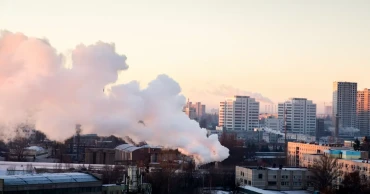commercial building
Why Fire Safety Audit is Essential for Commercial Buildings
Bangladesh isn’t new to fire accidents. In the last several years, the country has seen some devastating fire accidents that claimed the lives of hundreds and destroyed millions in property. The recent fire in Dhaka’s busy Bailey Road which claimed the lives of 46 individuals only resonates with the helplessness and despondency left behind by the tragedy. Every fire incident brings forth the question of fire safety audit or lack thereof. Because a tangible and thorough audit could’ve saved the 46 precious human lives and the many more we’ve lost thus far.
What is a Fire Safety Audit?
A fire safety audit is the systematic process of examining the compliance and preparedness of a building in the wake of a fire accident. The primary purpose of such audits is to identify potential hazards, evaluate the effectiveness of existing safety measures, and ensure that the building is equipped to handle emergencies, particularly fires.
These audits are typically conducted by qualified professionals, such as fire safety engineers or specialists, and may involve collaboration with local fire departments or regulatory authorities. In the case of Bangladesh, the primary regulatory body includes RAJUK (for Dhaka city), city corporations, and the Fire Service and Civil Defense department.
Read more: Fire Safety Tips for Parents to Keep Children Safe
A fire safety audit considers the following points of action:
- Existing fire protection system - Construction and design of the building - Emergency evacuation channels - Electrical and mechanical compliance - Documentation - Compliance with building codes - Risk assessment - Overall security measures
Why Fire Safety Audit is Essential for Commercial Buildings
Safety of the Occupants
The first and foremost reason for a fire and life safety audit is the safety of the occupants. A comprehensive audit helps to understand whether there is any structural flaw that might potentially be life-threatening for the occupants. It also helps to assess the preparedness of the occupants in case of an emergency and even educate them about the same.
Read more: Fire Safety in Apartments: Causes and Prevention
Compliance with the Building Code
Fire safety audits can help to assess whether the building has been constructed in line with the proper building code. Compliance with the building code goes beyond the scope of just a legal requirement. It ensures that the building and its occupants have safety measures in place should there be any hazardous accidents.
One of the common building codes concerning fire safety is the construction of a fire exit and a second staircase. According to the city corporation, any building over five stories should have a second staircase. RAJUK puts the limit up to the tenth floor. The Fire Prevention and Fire Fighting Act of Bangladesh regulates that any building over six stories should have an emergency fire exit.
1 year ago
Gas explosion at residential, commercial buildings: Common causes and ways to prevent them
In recent years, reports of gas explosions in Dhaka city and other places in Bangladesh are worryingly becoming more frequent. Whether it’s a residential building, market, warehouse, or business center, there is a looming threat of gas explosion. Several factors may trigger a gas blast and cause fatal damage to human lives and properties. Let’s take a look at what causes gas explosions and how to minimize the risks.
Common Causes of Gas Explosions in Residential Buildings
A residential building and flats in it face major risk when required safety measures against gas explosions are not taken. There have been many incidents of gas explosions in residential units simply due to carelessness and lack of proper measures. Here are some possible reasons for gas explosions in residential units.
Gas Leaks
One of the prime causes of gas explosions in residential buildings is gas leak. Apartments or houses use gas cylinders or direct gas lines. If there is a leak in the line or the cylinder, it might potentially cause explosions if the home unit doesn’t have good ventilation.
Read More: Fire Safety in Apartments: Causes and Prevention
Faulty Gas Appliances
Gas appliances like cookers, stoves, ovens, or heaters can malfunction and cause gas leakage. If the gas stove or cooker is not properly connected to the gas line, it may leak gas and lead to explosions. In many residential buildings and apartments, people tend to use expired gas cylinders which may cause gas explosions.
Poorly Maintained Gas Equipment
The gas line and the cylinder can also be the source of gas explosion. For example, if the main supply line or the cylinder gets corroded, it might end up leaking gas at different spots. Such leakages may culminate into explosions in contact with fire or sparks.
Air conditioners and refrigerators are equipped with non-supply gas storage or operated systems. Without proper maintenance, these appliances may deteriorate over time and cause fatal consequences.
Improper Installation
Gas units should always be installed under the supervision of a trained professional. Improper installation may lead to gas leaks. It’s better to avoid DIY procedures to avoid gas leaks and subsequent explosions.
Read More: Workplace Fire Safety: 12 Effective Ways to Prevent Fire Hazards
Faulty Connections
In many cases, gas leaks in residential buildings and apartments are caused by faulty connections in the gas pipeline. When the gas, trapped in a closed room or space, comes in contact with flame or spark, it can cause an explosion.
Natural Disasters
Natural disasters can also be possible causes of gas explosions. In the event of a natural disaster like cyclone, earthquake, or flood, gas lines or cylinders can leak which might lead to explosions.
2 years ago



